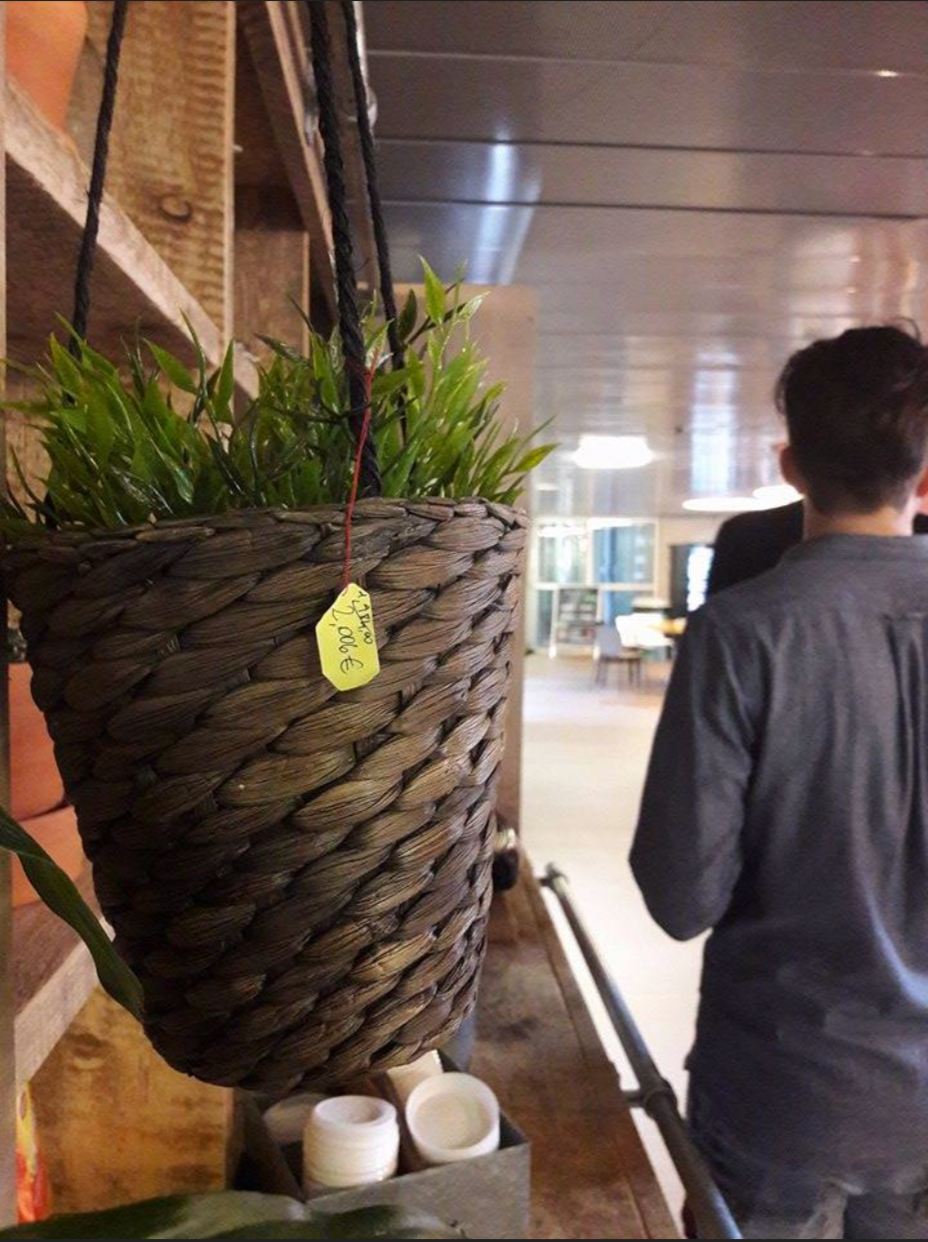
The Culmination of P.C. Hoofthuis / Gentrification / The Alienation of the University and its purpose / The Separation of the City and the Student / Today is the Perfect Day to be Happy

Society of the Spectacle: Canteen de Board intervention explores the meaning and function of ‘public’ and ‘private’ spaces in the university by inspecting the signs in the university canteen at P.C. Hoofthuis in Amsterdam.
Society of the Spectacle: Canteen de Board intervention explores the meaning and function of ‘public’ and ‘private’ spaces in the university by inspecting the signs in the university canteen at P.C. Hoofthuis in Amsterdam. As a response to privatization and appropriation of the university spaces, the recently privatized university canteen is taken as a case study to explore how we, the students, can become more active in shaping the study environment. Price tags are placed on the not-for-sale objects in the recently privatized canteen (lamps, tables, etc.); chalks are put to write on the recently painted walls as blackboards that host the canteen’s feel-good slogans; Guy Debord, Mark Fisher, Nancy Fraser texts left on the tables (isn’t capitalism “the master category or framing concept for all serious social theorizing”, Fraser asks in one of them).
The intervention is informed by texts on commodity culture and capitalist configuration of public spaces, as well as the notion of ‘play’ as a political and transformative tactic, including Guy Debord’s The Society of the Spectacle (1967) and Situationist International texts (‘Perspectives for Conscious Changes in Everyday Life’, ‘A User’s Guide to Détournement’, ‘Détournement as Negation and Prelude’, ‘Report on the Construction of Situations’ (in Ken Knabb, ed., Situationist International Anthology. Berkeley: Bureau of Public Secrets, 2006). During the presentation, a series of images and signs in the canteen space are taken as objects of analysis to discuss the immediate effects of commodity culture in our everyday life and the possibility of reconfiguring the spaces we inhabit.